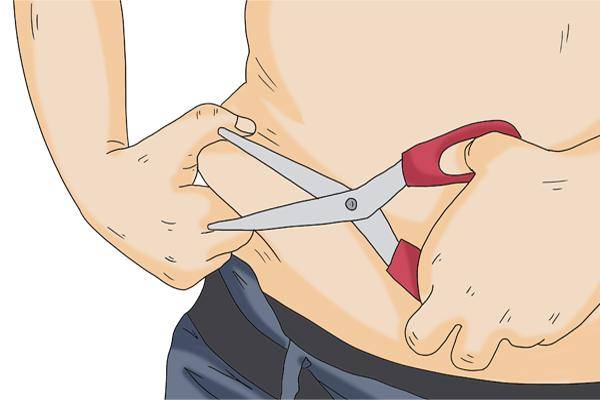Ms. Lin has been troubled by something for a long time. She lost twenty pounds to look more beautiful in her wedding dress, but now she is starting to rebound, not knowing what went wrong and how to change it.
First, we need to find the reasons for the rebound:
Dieting is the fastest weight loss method we can think of now. While dieting is correct, it shouldn’t be too strict. Overdoing it can affect the body’s functions as there won’t be a source of nutrients. When one ends the diet and starts eating normally, the body becomes “hungry,” craving nutrients, which leads to weight gain.
The main reason for obesity is that most of the absorbed energy forms into fat and stays in the body. People often think that staples like rice and steamed buns are the main culprits of obesity, but they only provide carbohydrates. It’s fats that contribute most to obesity, so avoiding staples won’t help with weight loss. Low-fat carbohydrates can provide a sense of fullness, helping control our calorie intake.
Many weight-loss pills claim quick and easy efficacy, but most of them primarily cause dehydration in the body through mechanisms like diarrhea. Losing water weight is unreliable because our bodies need daily hydration, and short-term dehydration doesn’t burn fat. After stopping the pills, resuming water intake will lead to weight gain again.
Aerobic exercise is the most effective in burning fat, but it also reduces muscle mass. Muscle mass is closely related to our metabolism. Although losing muscle mass may reduce weight temporarily, once exercises are stopped, the lost muscle mass will return, leading to weight gain.
After regular exercise, various bodily functions improve, and metabolic rate increases. The initial level of exercise may no longer suffice to burn fat. Without increasing exercise intensity, fat burning may plateau or even lead to rebound. Therefore, do not waste effort on ineffective exercises.
So, how can we make a change?
Include strength training and reduce and enhance aerobic training.
Prior to aerobic exercise, incorporate some strength training to help preserve the muscles consumed during aerobic exercise, preventing muscle loss. This maintains the body’s metabolism rate and prevents rebound. Exercises like push-ups, pull-ups are beneficial for strength training. As aerobic exercises during the weight loss period have primed the body, intensifying aerobic exercises during rebound, like gradually increasing running speed or jumping rope, is advised. A combination of 45 minutes of strength training and 15 minutes of aerobic training, with both types complementing each other, is most effective.
Ensure good quality of sleep.
Since sleep quality affects our metabolism, metabolism during sleep is faster than during the day. Staying up late increases our appetite. Having a good sleep quality means waking up energized, and a lively start to the day can reduce overeating, removing concerns about weight rebound. Ms. Lin can follow the advice in this article without worrying about her wedding dress. Do you know anyone going through the phase where weight remains stagnant or rebounds during weight loss? Quickly share these solutions with them!


